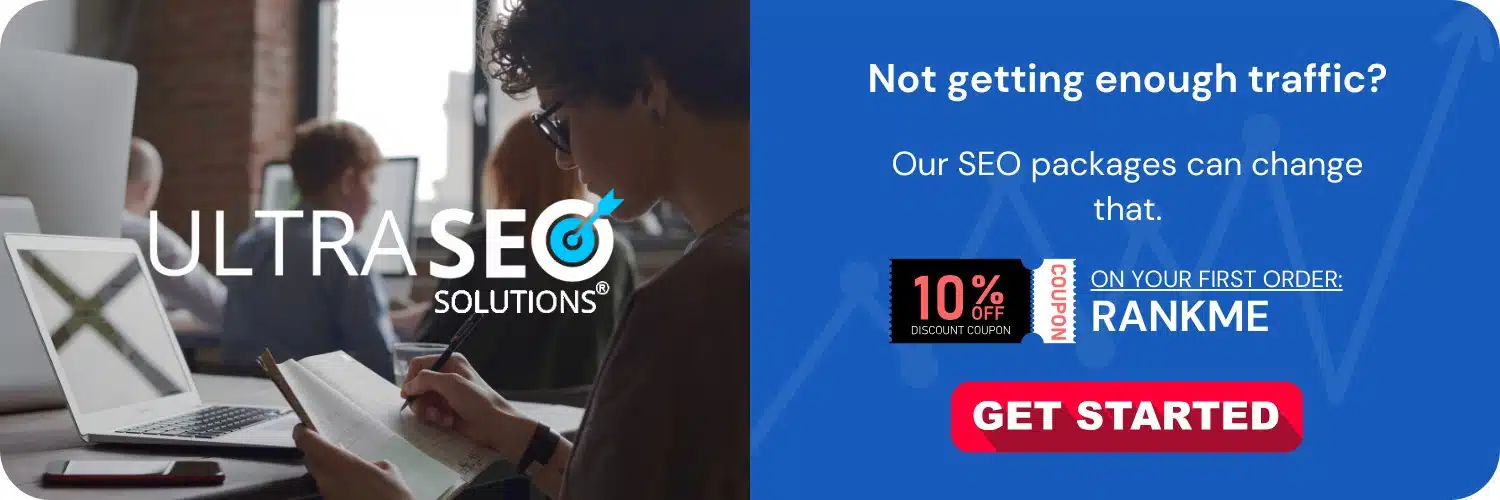
The most common goal of Search Engine Optimization (SEO) poisoning is to manipulate search engine rankings to drive traffic to malicious websites. These websites often host malware, phishing pages, or other fraudulent content designed to compromise the security of visitors or deceive them into giving away sensitive information. SEO poisoning exploits vulnerabilities in search engines’ algorithms to artificially inflate the ranking of a page, which gains visibility among search engine users who are then more likely to click on these malicious links.
Understanding SEO Poisoning
SEO poisoning, also known as search poisoning, is a black hat SEO technique that aims to take advantage of the trust users have in search engines. The attackers carefully craft content and use aggressive SEO tactics to rank their pages for popular keywords, including current events or trending topics, to maximize their visibility and the potential pool of victims.
How SEO Poisoning Works
SEO poisoning involves several steps:
- Selection of Keywords: Attackers choose popular or trending keywords that are more likely to be searched by a large number of users.
- Creation of Toxic Content: The attackers generate content or pages that seem legitimate and relevant to the selected keywords but are actually designed to serve malicious purposes.
- Exploitation of Search Engine Algorithms: Various black hat techniques are applied to improve the rankings of these pages, such as keyword stuffing, cloaking, or hidden text.
- Spread of Malware: Users who visit these poisoned pages may be exposed to malware downloads, phishing attempts, scams, or forced redirects to other harmful sites.
It’s important to understand that this malicious practice does more than simply inconvenience users; it can lead to serious security breaches and data theft.
Types of SEO Poisoning Attacks
There are various types of SEO poisoning attacks, and each has a particular end goal:
- Malware Distribution: Some pages aim to infect users’ computers with viruses, ransomware, spyware, or other malware.
- Phishing: These types of attacks create pages that mimic legitimate sites to steal login credentials, credit card numbers, or personal information.
- Scams: Poisoned SEO results may lead to sites offering fraudulent goods or services, often targeting vulnerable individuals.
- Spreading Disinformation: Some attackers may use SEO poisoning to promote fake news or propaganda.
By targeting search engines, attackers can reach a broad audience without the need for more traditional and easily traceable methods of distribution, such as spam emails.
Impact of SEO Poisoning
The impact of SEO poisoning extends far beyond individual users; it can affect businesses and the credibility of the search engines themselves.
Compromise User Security
The most immediate and obvious impact is the danger that these attacks pose to users. By clicking on poisoned search results, individuals may unwittingly expose their devices to malware, which can lead to identity theft, financial loss, or damage to digital assets.
Damaging Business Reputation
Businesses that fall victim to SEO poisoning can suffer significant harm to their reputation. If a company’s website is compromised and used as a medium for an SEO poisoning attack, it can lose the trust of its customers and partners.
Undermining Search Engine Integrity
Search engines are built on the principle of delivering relevant, useful, and safe content to their users. Poisoned search results call into question the reliability of the search engines’ algorithms and can lead to a loss of trust in these platforms if users repeatedly encounter harmful content.
Techniques Used in SEO Poisoning
SEO poisoning uses a variety of strategies to achieve its goal. The following are some of the commonly used techniques:
Link Farms and PBNs
Attackers may use link farms or private blog networks (PBNs) to create a large number of backlinks to their malicious pages, intending to trick search engines into deeming those pages important and relevant due to the perceived popularity.
Keyword Stuffing
SEO poisoning often involves ‘keyword stuffing’ – the practice of overloading webpages with keywords and phrases in an attempt to manipulate the site’s ranking.
Cloaking
This technique involves presenting different content to search engines than to users. When a search engine indexes the page, it sees harmless content, but when a user clicks through, they are redirected to a malicious site or exposed to harmful material.
Doorway Pages
Doorway pages are created to rank for a variety of search queries but ultimately funnel users to one destination, often a malicious website. These pages provide little or no original content and are used solely as a means to deceive search engines.
Use of Hacked Websites
Sometimes, legitimate websites that have been compromised are used as part of an SEO poisoning attack. These sites may have good authority and existing SEO value, which attackers exploit to push their malicious content up the search results.
Defending Against SEO Poisoning
Search engines continue to refine their algorithms to protect against SEO poisoning. However, website owners and users should also take steps to guard against these types of attacks.
For Website Owners:
- Keep software and plugins up-to-date to mitigate vulnerabilities.
- Implement strong security protocols for website access.
- Monitor backlinks and search rankings for unusual activity.
- Utilize security services that can detect and block malicious activities.
For Users:
- Use reputable security software to block known malicious sites.
- Be skeptical of search results, especially those related to trending topics or events.
- Check the URL and look for HTTPS to ensure the site’s security.
- Avoid clicking on suspicious links or downloading files from untrusted sources.
Finishing Thoughts
SEO poisoning is a nefarious practice with the potential to cause widespread harm to internet users and erode the trustworthiness of search engines. Recognizing the common goal of these attacks—to direct users to malicious websites—it’s crucial for individuals and businesses alike to remain vigilant and take proactive measures to safeguard their online presence.
Search engines are constantly evolving to combat these threats, but as with all aspects of cybersecurity, it’s a cat-and-mouse game with attackers continually developing new strategies. Keeping informed about the latest trends in SEO poisoning and implementing robust security practices will go a long way in mitigating the risks and ensuring the safety and integrity of the digital landscape.
Frequently Asked Questions
What is Search Engine Optimization (SEO) Poisoning?
Search Engine Optimization (SEO) Poisoning, also known as Search Poisoning, is a malicious technique used by cyber attackers to manipulate search engine rankings to display their own fraudulent or infected websites at the top of search results. This is typically achieved by leveraging SEO tactics such as keyword stuffing and link schemes but with the ulterior motive of spreading malware, engaging in phishing campaigns, or driving traffic to malicious sites.
What is the most common goal of SEO Poisoning?
The most common goal of SEO Poisoning is to infect users’ devices with malware. Attackers aim to rank their malicious pages high in search results for popular search queries. When unsuspecting users click on these links, they are taken to websites that may initiate automatic downloads of malware, potentially leading to identity theft, ransomware attacks, or unauthorized access to sensitive information.
How do attackers manipulate SEO rankings?
Attackers use several techniques to manipulate SEO rankings, including:
- Keyword stuffing with popular and trending search terms.
- Creating fake websites or hacking legitimate ones to insert malicious links.
- Using link farms to artificially increase the number of inbound links to their malicious sites.
- Exploiting vulnerabilities in web applications to insert redirections to malicious sites.
What are the symptoms of SEO Poisoning?
Symptoms of SEO Poisoning can vary widely, but some common indicators may include:
- Unexpected redirects to unfamiliar websites when clicking on search results.
- Search results that contain out-of-context keywords or gibberish.
- Antivirus software alerts after visiting a website from search engine results.
Can SEO Poisoning affect legitimate websites?
Yes, legitimate websites can be affected by SEO Poisoning. Cyber attackers may compromise a legitimate website’s security and use it to host and distribute malware. This can harm the website’s reputation, search rankings, and expose its visitors to cyber threats.
What measures can be taken to protect against SEO Poisoning?
To protect against SEO Poisoning, website owners and users can employ a range of tactics including:
- Regularly updating website software and plugins to fix security vulnerabilities.
- Monitoring search engine rankings and traffic sources for unusual activity.
- Implementing web security practices, such as using HTTPS and setting up security headers.
- Users should have updated antivirus software and be cautious about clicking on search results that appear suspicious or irrelevant.
What should I do if my website has been affected by SEO Poisoning?
If you suspect that your website has been affected by SEO Poisoning, you should:
- Conduct a thorough security audit of your website.
- Remove any malicious content and links that have been added by attackers.
- Update all passwords and security credentials.
- Restore a clean backup of your website, if available.
- Inform your hosting provider and work with them to address the security breach.
- Submit a request to search engines to re-evaluate your website after cleaning it.
How can I report suspicious websites or search results to search engines?
Most major search engines allow you to report suspicious websites or search results directly through their platform. Look for options like “Report a problem” or “Send feedback” on the search results page. Providing detailed information can help search engines take appropriate actions to remove or demote malicious content in their search rankings.






